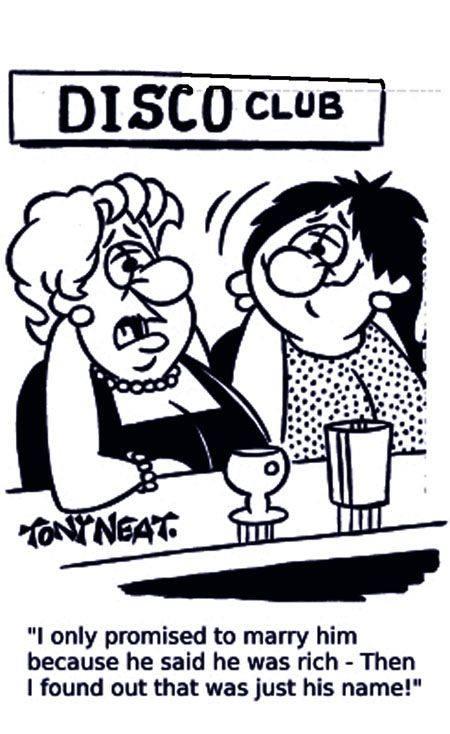不花钱的生活之道

In six years of studying economics, not once did I hear the word “ecology”. So if it hadnt have been for the chance purchase of a video called Gandhi in the final term of my degree, Id probably have ended up earning a fine living in a very respectable job. The little chap in the loincloth taught me one huge lesson—to be the change I wanted to see in the world. Trouble was, I had no idea back then what that change was.
After managing a couple of organic food companies made me realise that even “ethical business” would never be quite enough, an afternoons philosophising1 with a mate changed everything. We were looking at the worlds issues—environmental destruction, sweatshops2, factory farms, wars over resources—and wondering which of them we should dedicate our lives to. But I realised that I was looking at the world in the same way a western medical practitioner3 looks at a patient, seeing symptoms and wondering how to firefight them, without any thought for their root cause. So I decided instead to become a social homeopath4, a proactivist, and to investigate the root cause of these symptoms.
One of the critical causes of those symptoms is the fact we no longer have to see the direct repercussions5 our purchases have on the people, environment and animals they affect. The degrees of separation between the consumer and the consumed have increased so much that were completely unaware of the levels of destruction and suffering embodied in the stuff we buy. The tool that has enabled this separation is money.
If we grew our own food, we wouldnt waste a third of it as we do today. If we made our own tables and chairs, we wouldnt throw them out the moment we changed the interior decor. If we had to clean our own drinking water, we probably wouldnt contaminate it.
So to be the change I wanted to see in the world, it unfortunately meant I was going to have to give up cash, which I initially decided to do for a year. I got myself a caravan6, parked it up on an organic farm where I was volunteering. Cooking would now be outside—rain or shine7—on a rocket stove; mobile and laptop would be run off solar; Id use wood I either coppiced or scavenged to heat my humble abode.8
Food was the next essential. There are four legs to the food-for-free table: foraging wild food, growing your own, bartering, and using waste grub, of which there is loads. On my first day, I fed 150 people a three-course meal with waste and foraged food. Most of the year, though, I ate my own crops.
To get around, I had a bike and trailer, and the 34-mile commute to the city doubled up as my gym subscription. For loo roll Id relieve the local newsagents of its papers; its not double-quilted, but I quickly got used to it.
What have I learned? That friendship, not money, is real security. That most western poverty is of the spiritual kind. That independence is really interdependence. And that if you dont own a plasma screen TV, people think youre an extremist.
People often ask me what I miss about my old world of lucre and business. Stress. Traffic jams. Bank statements. Utility9 bills. Well, there was the odd pint of organic ale with my mates down the local.10

在学习经济学的六年中,我一次也从没听过“生态学”这个词。所以,如果不是在最后一个学期偶然买了盘名为“甘地”的录像带,我很可能会找到一份体面的工作并过上了好日子。但那个缠着腰布的小个子男人给我大大地上了一课:要想改变世界,先改变自己。但问题是,我那时还没想好要改变什么。
在管理了几家有机食品公司后,我意识到即使是“有道德的生意”也绝不足以改变什么。而某个下午我与一个同事的深入讨论却改变了一切。我们探讨了很多世界性问题——环境破坏、血汗工厂、工厂化农场、资源争夺战——并疑惑我们应该为其中的哪项事业贡献力量。但我意识到,我看待世界的方式跟西医对待病人的方式一样——看到症状,考虑如何医治,而丝毫不去思考病根何在。所以我决定停止空谈,成为一个社会顺势医疗者,一个先发制人的行动派,并调查这些症状的根源。
造成那些症状的其中一个关键原因就是:我们不用看到购买的商品对人、环境和动物造成影响的直接后果。消费者和商品之间的距离正变得越来越远,以致于我们完全不知道所购买的商品(对环境等)造成的破坏有多么严重。而造成这种距离的工具正是由金钱。
如果我们自己亲手种食物,我们就不会像今天这样浪费掉三分之一的食物。如果我们亲自制作桌椅,我们就不会在室内重新装修时把它们扔掉。如果我们得亲自净化饮用水,我们可能就不会去污染水源。
所以为了做到“要想改变世界,先改变自己”,我必须得放弃金钱,并最初打算坚持一年时间。我给自己找了辆旅行拖车(作为住所),把它停放在一个有机农场里,而我是这个农场的义务劳动者。不论天气好坏,做饭都只用外面的火箭炉做;手机和笔记本电脑要靠太阳能提供电力;我会用修剪下来或者捡来的木枝为我的陋室取暖。
食物是另一件必需品。我可以通过四种方法吃上免费食物:搜寻野味,自己耕种,以物易物以及(这儿多得是的)剩饭剩菜。第一天,我拣来的剩饭剩菜就够150人吃了顿三道菜的“大餐”。不过,一年里的大部分时间我都是吃自己种的粮食。
为了出行,我有一辆自行车和一辆拖车,(我住的地方)距离城里有34英里,骑个来回就是我的健身方式。卫生纸我就用当地报纸,此举可帮报刊经销人减负;这种“卫生纸”并非双层的,但我很快就习惯了。
我学到了什么?友谊比金钱更可靠。西方人最匮乏的是精神食粮。独立意味着互相依赖。如果你没有一台等离子电视,人们会认为你是一个极端主义者。
人们常常问我,对于充斥着金钱和商业的旧世界,我会怀念什么。工作压力。交通拥堵。银行账单和公共事业费。嗯,我会想念和伙伴们在酒吧偶尔喝到的一品脱有机啤酒。”
1.philosophise:〈主英〉=philosophize,哲学家似地思考(或推理),详谈。
2. sweatshop: 血汗工厂(工作条件恶劣而工资低微的小企业、工厂等)。
3. practitioner: 执业医生。
4. homeopath:〈主英〉=homoeopath,使用(或提倡)顺势疗法的医生;“顺势疗法”(homeopathy)是1796年哈内曼提出的一种有别于传统西医的治疗学方法,其理论基础是“同样的制剂治疗同类疾病”,意思是为了治疗某种疾病,需要使用一种能够在健康人中产生相同症状的药剂。
5. repercussion:(尤指不好的)持续影响,反响,后果。
6. caravan:(带有食宿设备的)旅行拖车。
7. rain or shine:〈口〉在任何情况下,不论天气好坏。
8. coppice: 修剪(树木)以助生长;scavenge:(人)在废弃物中寻找(可食或可用的东西);abode: 住所。
9. utility: 公共事业(如煤气、电力等)。
10. pint: 品脱(美国和英国的液量单位,尤用于啤酒或牛奶);ale: 麦芽啤酒。

